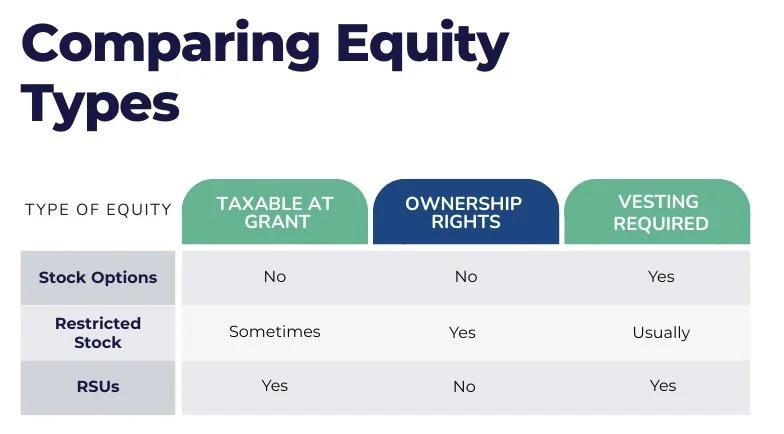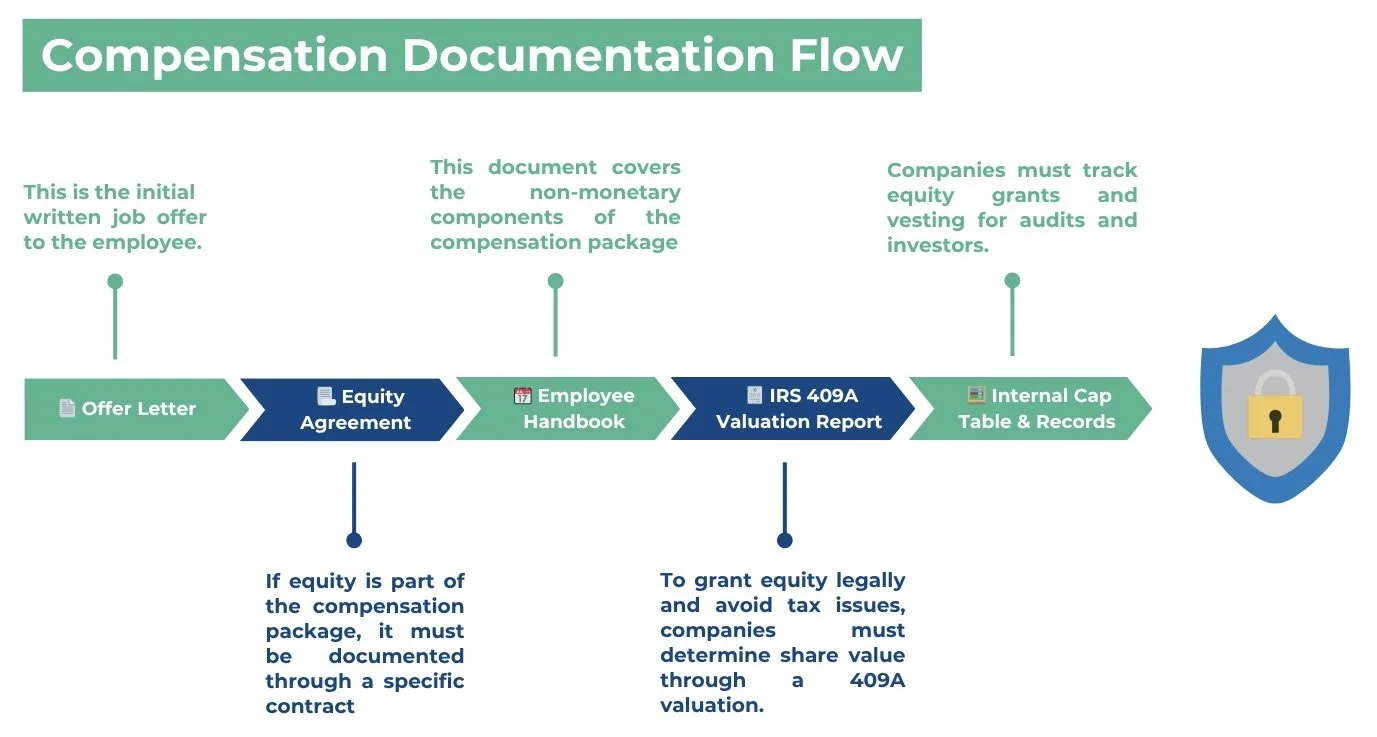Employee compensation considerations for start-ups: salary, equity, and other benefits
When launching a start-up, building a strong and motivated team is crucial for success. Structuring the right mix of salary, equity, and benefits can not only help attract top talent but also support long-term growth. Here are some key considerations to keep in mind when developing employee compensation plans:
1. Salary: Some start-ups may have early investor backing and be able to offer competitive salaries early on. However, if your company is still building an investor base, it can be tempting to rely on deferred compensation. However, start-ups must comply with Federal and State minimum wage laws, even if employees would otherwise agree to work for below minimum wage in exchange for equity. Under the Fair Labor Standards Act (“FLSA”), certain employees must receive overtime pay unless they qualify as exempt. Misclassifying employees can lead to penalties, back pay, and litigation. Deferred compensation must also be documented properly under IRS rules Section 409A.
2. Equity: Offering employees equity in your company can be an appealing option to attract top talent. Common forms of equity include:
Stock Options
Restricted Stock
Restricted Stock Units (RSUs)
Make sure to consult with tax and accounting professionals to ensure compliance with Section 409A of the Internal Revenue Code on deferred compensation and securities laws related to offering equity to employees.
In terms of timing, many start-ups use a four-year vesting schedule for stock options to encourage employee retention. This vesting schedule often involves one-year cliff, where employees must remain at the company for at least one year of employment, and do not earn their stock options until this time has lapsed. For example, under a typical four-year
Different equity types carry different tax, legal, and ownership implications.
3. Benefits: Although some start-ups may not offer traditional benefits like health insurance and 401(k) plans at the early stages due to overhead costs, companies can offer alternatives to appeal to employees such as:
Flexible work arrangements (remote work, flexible hours)
Professional development stipends
Unlimited PTO
Mental health and wellness resources
Coworking space allowances
It is important to stay up to date on federal and state-specific laws for benefits. For example, if a company grows to 50 or more full-time employees, it may be subject to the Affordable Care Act (ACA) employer mandate. States like California and New York also have specific regulations on paid sick leave and benefits that must be followed regardless of company size.
Creative benefits can help compensate for limited cash resources.
4. Documentation: Clear, written documentation of compensation arrangements—including offer letters, stock option agreements, and employee handbooks—is essential. It not only helps avoid disputes but also reassures potential investors and acquirers that your company has its legal house in order.
Compensation planning touches multiple legal areas: employment law, tax law, and securities regulation, to name a few. Involving legal counsel and tax advisors early on can prevent costly mistakes and ensure your compensation strategy supports both compliance and growth.
Well-documented compensation plans reduce legal risk and build investor trust.



